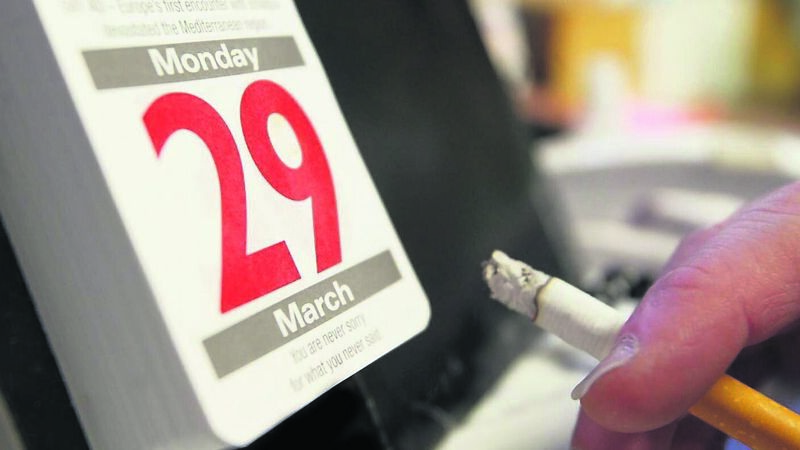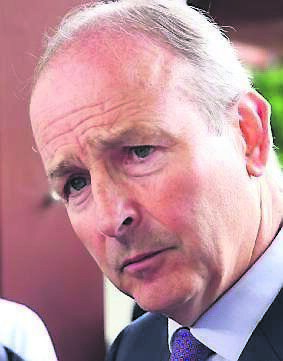20 years on... the day I declared war on cigarettes, by Micheál Martin

March 29, 2004, was the date when then Health Minister Micheál Martin, who wrote this article, brought in his smoking ban
THIS March marks 20 years since one of the most significant days in my public life - the introduction of the workplace smoking ban.
Two decades on, it’s difficult to comprehend that, on a daily basis, workers were exposed to second-hand smoke and to the risks of lung cancer, respiratory disease, heart disease, and much more.
It is easy to forget now how controversial, and indeed how unimaginable, the measure was.
It sparked ferocious debate over several months, perhaps the first real discussion on public health in Ireland. The idea of a ban on smoking captivated the country - it was argued back and forth on The Late Late Show, Liveline, on current affairs programmes and in newspapers across local and national media.
Many business-owners, particularly publicans, were fearful of such change and the impact it could have on their livelihoods. They would later come to accept the ban and even embrace it, all for the greater good.
In the face of intense backlash, doctors and health professionals stood up to ensure their expert opinions were heard and counted in the debate. The eyes of the world were on Ireland to see if it could or would work.
We have continued to push ahead with tobacco control measures. We have done this because, simply, there is nothing good about smoking. It is addictive, it is lethal and I have yet to meet a smoker who is glad they started.
The Public Health (Tobacco) Act 2002 was the enabling legislation that paved the way for several key measures that would be rolled out in the ensuing years - the ban on the display of tobacco at the point of sale, the comprehensive ban on tobacco advertising and introduction of hard-hitting health warnings on cigarettes.
In 2003, Ireland signed the World Health Organisation’s Framework Convention on Tobacco Control - a treaty that was ratified two years later.

In 2017, plain packaging of tobacco products was implemented to ensure that branding or other packaging elements could not detract from the impact of those health warnings.
These measures have had real impact. Our smoking rates have fallen from extremely high levels of the past to 18% of adults today that smoke daily or occasionally.
This progress is welcome but we need to do much more in order to achieve our goal of less than 5% of our population smoking. We must reduce the appalling death toll of 4,500 people dying each year because of their smoking.
And now, 20 years on from the smoking ban, we face new, worrying challenges posed by e-cigarettes and vapes.
The Public Health (Tobacco Products and Nicotine Inhaling Products) Bill, will soon become law. It will introduce the requirement for an annual licence for those retailers that want to sell tobacco products or nicotine inhaling products such as e-cigarettes. It will also ban the sale of vapes to under-18s. It will end the sale of both tobacco products and nicotine inhaling products through vending machines, from temporary or ‘pop-up’ shops such as those at music festivals and at events for children.
In recent weeks, Health Minister Stephen Donnelly has also launched a public consultation on the further regulation of nicotine inhaling products including options to regulate flavourings, packaging, and the display of these products in our shops.
It is my firmly held belief that vaping products are the revenge of the tobacco industry for the smoking ban.
Our progress toward the ‘endgame’ of the elimination of smoking from our population must regain momentum.
As we approach the 20th anniversary of the workplace smoking ban, the time seems right to, once again, introduce radical measures to put the health of our population first and to come closer to our goal of a tobacco-free Ireland.







